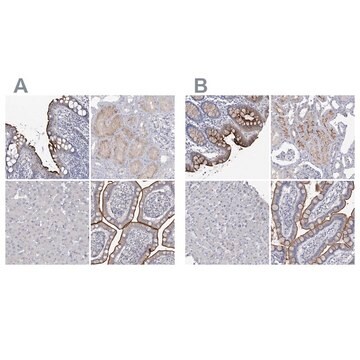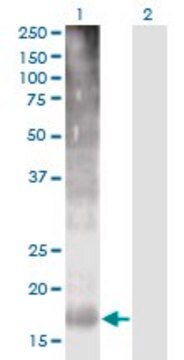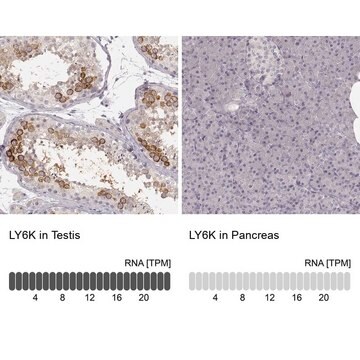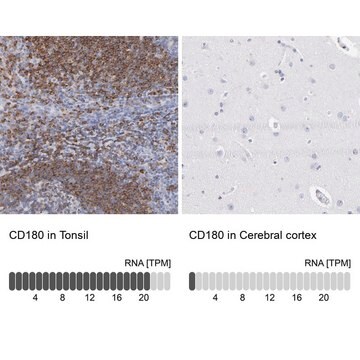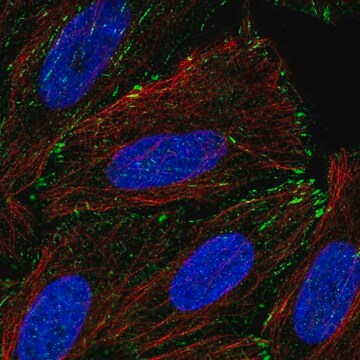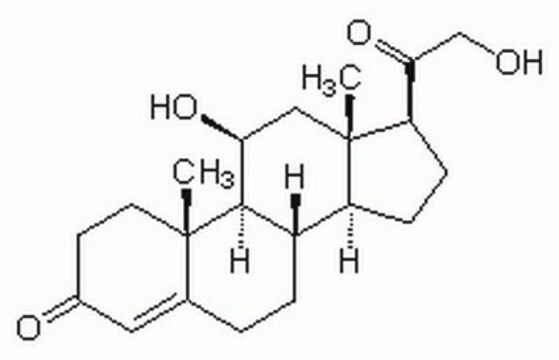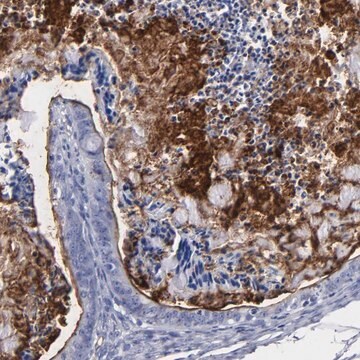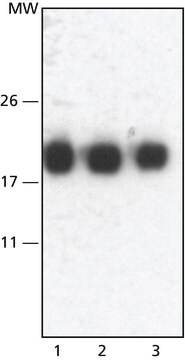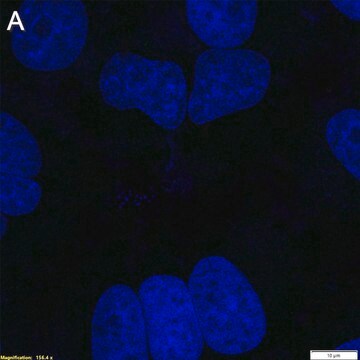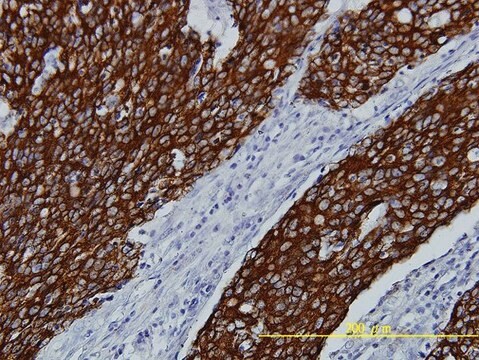SAB4200706
Anti-TM4SF4 antibody, Mouse monoclonal
clone TM4SF-11, hybridoma cell culture supernatant
Synonym(s):
Anti-ILTMP, Anti-il-TMP transmembrane 4 L six family member 4
Select a Size
Select a Size
About This Item
Recommended Products
antibody form
culture supernatant
Quality Level
antibody product type
primary antibodies
clone
TM4SF-11, monoclonal
form
buffered aqueous solution
mol wt
antigen ~27 kDa
species reactivity
rat, human, canine, monkey, mouse, bovine
technique(s)
immunoblotting: 1:4,000-1:8,000 using whole extract of HCT-116 cells
isotype
IgM
UniProt accession no.
General description
Immunogen
Application
Biochem/physiol Actions
Physical form
Disclaimer
Not finding the right product?
Try our Product Selector Tool.
Storage Class Code
12 - Non Combustible Liquids
WGK
nwg
Flash Point(F)
Not applicable
Flash Point(C)
Not applicable
Regulatory Listings
Regulatory Listings are mainly provided for chemical products. Only limited information can be provided here for non-chemical products. No entry means none of the components are listed. It is the user’s obligation to ensure the safe and legal use of the product.
JAN Code
SAB4200706-BULK:
SAB4200706-100UL:
SAB4200706-VAR:
Choose from one of the most recent versions:
Certificates of Analysis (COA)
Don't see the Right Version?
If you require a particular version, you can look up a specific certificate by the Lot or Batch number.
Already Own This Product?
Find documentation for the products that you have recently purchased in the Document Library.
Our team of scientists has experience in all areas of research including Life Science, Material Science, Chemical Synthesis, Chromatography, Analytical and many others.
Contact Technical Service